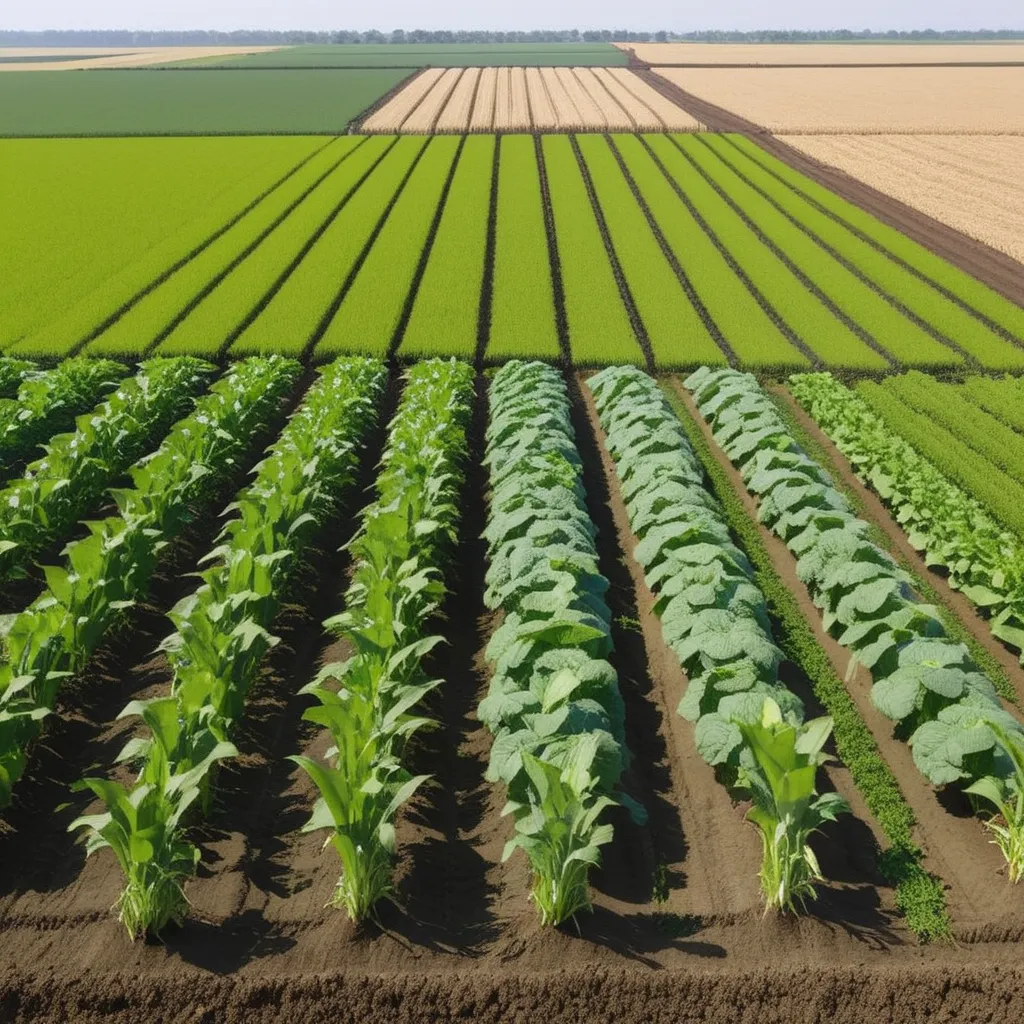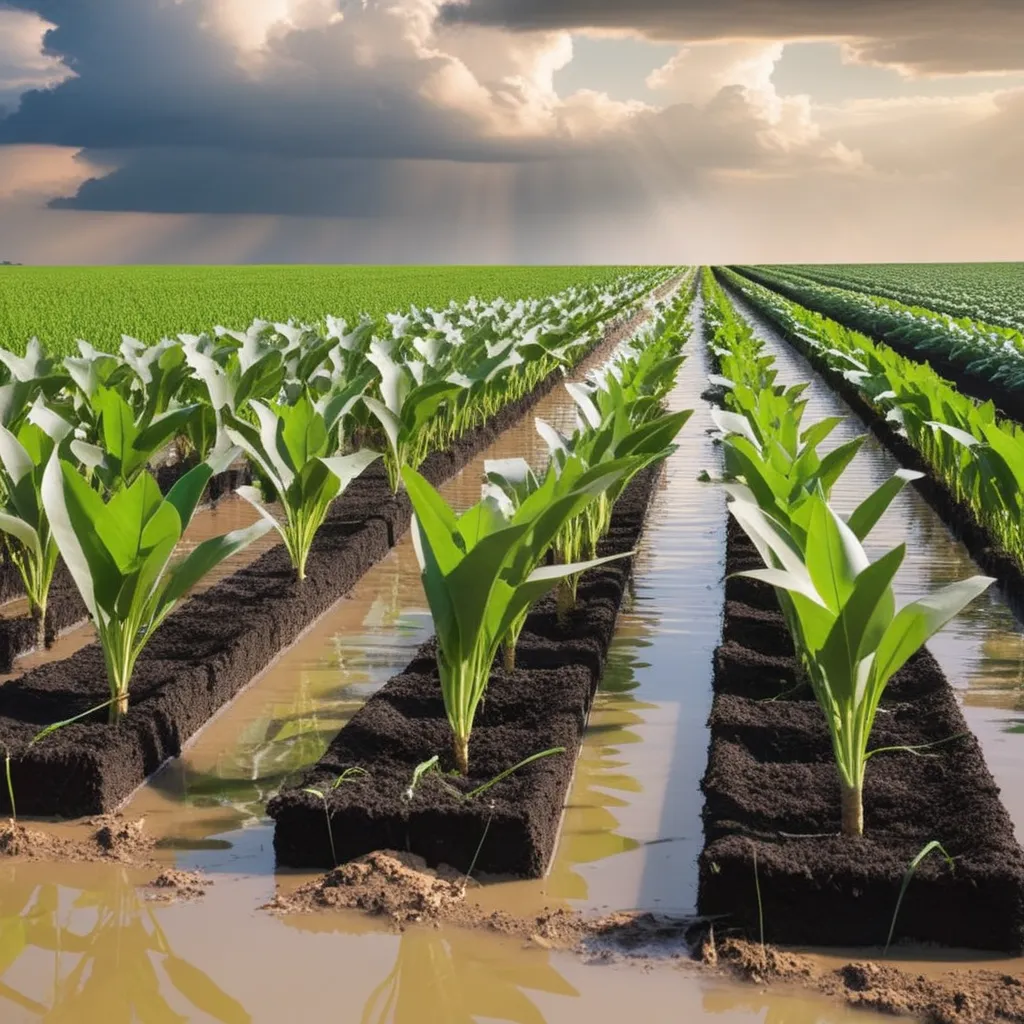The Effects of Climate Change on Global Agriculture
Picture this: the sun beating down relentlessly, parched fields, and crops withering away. This scene might sound like a dystopian vision, but it's a reality that many farmers around the world face due to the effects of climate change on global agriculture. In this article, we'll explore the far-reaching impact of climate change on our food systems and the challenges it presents, drawing insights from personal experiences.

A Personal Connection to Agriculture
Growing up in a family with a small backyard garden, I witnessed the magic of agriculture firsthand. The thrill of planting seeds, nurturing plants, and eventually harvesting the fruits of our labor left an indelible mark on me. Little did I know then that the changing climate would pose such a significant threat to this cherished activity.
One summer, as we faced an unrelenting heatwave, our once-thriving garden struggled to survive. It was a stark reminder of the vulnerability of agriculture to changing weather patterns.
The Complex Relationship Between Climate and Agriculture
Climate change has a multifaceted impact on agriculture:
1. Extreme Weather Events
Increasingly frequent and severe weather events, such as droughts, floods, and hurricanes, disrupt planting and harvesting seasons. These events can lead to crop failures and food shortages.
2. Temperature Changes
Rising temperatures affect crop growth and yield. Some crops are particularly sensitive to temperature fluctuations, which can reduce their nutritional value.
3. Pests and Diseases
Warmer temperatures can create favorable conditions for pests and diseases, affecting both crops and livestock. Farmers must adapt their pest management strategies.
4. Water Scarcity
Changing precipitation patterns and reduced water availability threaten agriculture, especially in regions heavily reliant on irrigation.
5. Crop Diversity
Climate change can alter the suitability of certain regions for specific crops. Farmers may need to diversify their crops to adapt.
Global Implications
The effects of climate change on agriculture have global implications:
1. Food Security
Climate-induced crop failures and disruptions to the food supply chain can exacerbate food insecurity, affecting vulnerable populations worldwide.
2. Economic Impact
Agriculture is a significant contributor to the global economy. Climate-related losses can lead to financial hardships for farmers and impact food prices for consumers.
3. Migration
In some regions, climate-induced agriculture challenges may lead to rural-to-urban migration as people seek alternative livelihoods.
4. Conflict
Competition for dwindling resources can exacerbate tensions and conflicts, particularly in regions with a history of resource disputes.
Mitigation and Adaptation
Addressing the effects of climate change on agriculture requires a multi-pronged approach:
1. Sustainable Farming Practices
Promoting sustainable agriculture practices, such as crop rotation, agroforestry, and organic farming, can enhance resilience to climate change.
2. Crop Breeding
Developing climate-resistant crop varieties that can thrive in changing conditions is crucial.
3. Water Management
Efficient water management practices, such as rainwater harvesting and drip irrigation, can mitigate the impact of water scarcity.
4. Education and Awareness
Educating farmers about climate-smart practices and providing access to climate information can empower them to adapt.
5. Global Cooperation
International collaboration is essential to address the global nature of climate change. Agreements like the Paris Agreement aim to mitigate its impact.

A Call to Action
The effects of climate change on global agriculture are a pressing concern. It's a problem that transcends borders and demands collective action. As individuals, we can support sustainable agriculture, reduce food waste, and advocate for policies that prioritize climate resilience.
As I reflect on the impact of climate change on agriculture, I'm reminded of the interconnectedness of our world. The health of our planet is intricately tied to the food we eat, and it's a reminder that we all have a role to play in preserving our shared home.<

No comments:
Post a Comment